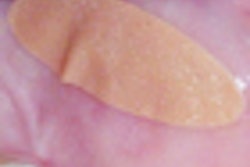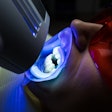Orthodontic residents have more positive attitudes than orthodontists when it comes to treating poor and underserved patients, according to a study in the Angle Orthodontist (November 2011, Vol. 81:6, pp. 1090-1096).
Even so, their attitude didn't indicate an increased willingness to provide care for these patients, according to the study authors.
Brett Brown, DDS, an orthodontist practicing in Lebanon, OR, and Marita Rorh Inglehart, PhD, an associate professor in the department of periodontics and oral medicine at the University of Michigan, investigated whether orthodontic residents and orthodontists differ in their attitudes and behavior concerning the treatment of underserved patients and how background factors such as the providers' gender, ethnicity/race, and age affect these attitudes and behavior.
The researchers surveyed 135 residents in U.S. and Canadian graduate orthodontic programs and 568 active members of the American Association of Orthodontists. Attitudes toward various aspects of treating underserved patients were rated on a five-point scale, with 1 indicating the most negative attitude and 5 indicating the most positive.
Orthodontic residents had more positive attitudes about treating poor patients (3.02 versus 1.99; p < 0.001), pro bono cases (3.87 versus 3.45; p < 0.001), and patients with craniofacial anomalies (3.64 versus3.01; p < 0.001) or mental retardation (3.13 versus 2.72; p < 0.001) than orthodontists. However, compared with orthodontists, lower percentages of residents intended to treat pro bono cases (73.5% versus 83%; p = 0.009) and patients with craniofacial anomalies (63.6% versus 82.9%; p < 0.001) or mental retardation (55% versus 81.5%; p < 0.001).
"Residents had more positive attitudes concerning the treatment of underserved patients than orthodontists," the researchers concluded. "However, they are less likely to intend to provide services for these patients than orthodontists."



















